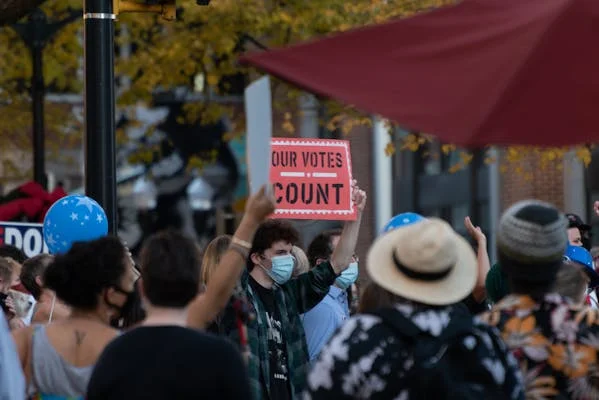The electoral system is the heart of American democracy, where the people’s voice is supposed to dictate the future of the nation. However, in recent years, the integrity of this system has been questioned, especially regarding the influence of money on politics. One significant issue that has come to the forefront is repealing public campaign financing requirements. This topic has sparked debate among policymakers, scholars, and citizens, as removing this requirement could reshape the future of U.S. elections.
The repeal of public campaign financing requirements—where candidates once received public funds for their campaigns if they adhered to certain spending limits—has ignited conversations about its impact on election fairness. But what does this repeal mean for American democracy, and why is it happening now? Let’s dive deeper into the issue to understand its implications.
What Is Public Campaign Financing?
Public campaign financing allows candidates to receive government funds to help finance their election campaigns. The idea behind this system is to reduce the influence of private donations, which often come with strings attached, and to allow candidates from all economic backgrounds an equal opportunity to run for office.
Under the Federal Election Campaign Act (FECA) of 1971 and later amendments, candidates for federal office could opt to take public funding in exchange for agreeing to spend limits on their campaigns. The goal was to create a more level playing field where the wealthiest candidates didn’t have an undue advantage.
However, the public campaign financing system has been under scrutiny recently, leading to growing calls for repeal.
The History of Public Campaign Financing
The concept of public campaign financing in the U.S. was first proposed in the 1970s, a pivotal moment in American history following the Watergate scandal. This scandal, which revealed significant corruption in campaign finance, prompted the introduction of public financing as a solution to address this issue. The system was designed to reduce the reliance on private donors and prevent special interest groups from gaining too much influence over elected officials.
Over the years, however, this system became more contentious. The rules governing public financing began to evolve, with candidates often opting out of the system due to the restrictions it imposed. By the 2000s, the system had lost favor, with many candidates believing it no longer effectively curbing money’s influence in politics.
The Rise of Super PACs and the Decline of Public Campaign Financing
The rise of Super Political Action Committees (Super PACs) following the landmark Supreme Court decision in Citizens United v. FEC (2010) further undermined the public campaign financing system. Super PACs are independent political committees that can raise unlimited sums of money from corporations, unions, and individuals, and then spend unlimited amounts of money to advocate for or against political candidates. This ruling essentially allowed for unlimited donations to these political action committees, which could then spend unlimited amounts of money on advertisements supporting or opposing candidates, thereby significantly altering the campaign finance landscape.
The Repeal of the Public Campaign Financing Requirement
In recent years, the repeal of public campaign financing requirements has become an increasingly discussed topic. Critics argue the system is outdated and ineffective in curbing money’s political influence. They point to the rise of Super PACs and independent expenditures, which have fundamentally changed the landscape of U.S. elections.
One of the most notable examples of this trend occurred in the 2016 presidential election. In that election, both major party candidates, Donald Trump and Hillary Clinton, opted to forgo public financing. Clinton raised over $1 billion for her campaign, and Trump raised nearly $650 million. Both candidates were able to raise and spend far more than the public financing system would have allowed, demonstrating the system’s inefficiency in the modern era.
Reasons Behind the Repeal
Ineffectiveness in the Modern Era
The primary reason for repealing public campaign financing requirements is that the system is no longer effective. With the rise of Super PACs and other forms of private funding, the need for public financing has diminished. Candidates can now raise more money privately than they could through the public system, making the public option obsolete in many cases.
Cost of Elections
Campaigns have become increasingly expensive. The cost of running a competitive presidential or congressional campaign has skyrocketed, and the money needed to run these campaigns often exceeds the amount that can be provided through public financing. As a result, many candidates have opted to forgo public funding in favor of private donations that allow them to compete in a highly competitive environment.
Limitations of Public Funding
Public financing comes with strings attached. Candidates who accept public funds must adhere to strict spending limits, which can limit their ability to run an effective campaign. In contrast, private donations have fewer restrictions, allowing candidates to raise unlimited funds for their campaigns.
Impact of the Repeal on Elections
More Influence from Wealthy Donors
One of the most significant concerns regarding repealing public campaign financing is the increased influence of wealthy donors and special interest groups. With the decline of public financing, candidates rely more on private donations to fund their campaigns. This can lead to a situation where the wealthiest individuals and organizations have disproportionate influence over the political process.
Increased Polarization
With the rise of Super PACs and other forms of independent spending, campaigns have become more polarized. These groups often engage in negative campaigning, using their financial power to attack opponents rather than promote their candidates. This can contribute to a more divisive political climate and erode public trust in the electoral system.
Potential for Corruption
As candidates increasingly raise money from private donors, there is a growing concern about the potential for corruption. Large donations can create a sense of obligation between politicians and their donors, leading to policies that benefit the wealthiest individuals and organizations rather than the general public. This can reinforce the perception, and sometimes the reality, that elections are being bought and sold.
Alternatives to Public Campaign Financing
While repealing public campaign financing requirements is often seen as a step backward for reform, some alternatives could address the underlying issues.
Campaign Finance Reform
One promising solution is comprehensive campaign finance reform. This could involve stricter regulations on Super PACs, transparency in campaign donations, and public disclosure of all political contributions. Such reforms could help ensure that money does not have an outsized influence on elections while still allowing candidates to raise the funds they need to compete.
Small Donor Matching Systems
Another potential solution is the implementation of small donor matching systems. These systems would match small donations from individual voters with public funds, encouraging grassroots fundraising while limiting the influence of large donors. This approach has been used in several states and could be expanded at the federal level.
Conclusion
The repeal of public campaign financing requirements is a complex issue that has the potential to reshape the future of U.S. elections. While the system was initially designed to reduce money’s influence in politics, it has become increasingly ineffective in the modern era, where Super PACs and private donations dominate the political landscape.





